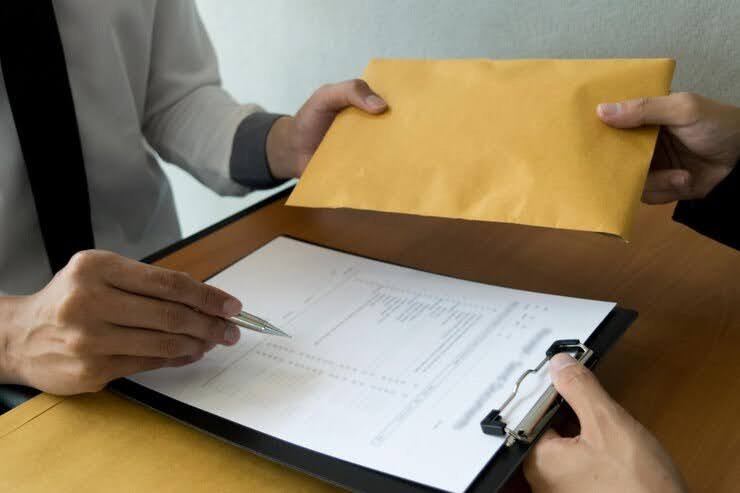
Forgery is more than just a criminal act, it’s a betrayal of trust, a manipulation of truth that can harm individuals, businesses, and even the public sector. Whether it’s falsifying a signature on a contract or altering official documents, the consequences are severe.
In Singapore, the punishment is strict, reflecting the seriousness with which the legal system treats these crimes. If you’ve ever wondered what happens when someone commits forgery or what the penalties for forgery entail, this blog will guide you through the process, ensuring you understand the gravity of such offences.
What Is Forgery?
Forgery involves the act of creating, altering, or using a document, signature, or electronic record with the intent to deceive or defraud. Under Section 463 of the Penal Code, forgery encompasses:
- Creating a false document or electronic record with the intent to cause damage or injury to the public or any person.
- Supporting any claim or title.
- Causing any person to part with property.
- Entering into any express or implied contract.
- Committing fraud or permitting fraud to be committed.
What Is the Punishment for Forgery in Singapore?
In Singapore, forgery is a serious crime, and the punishment for it reflects the legal system’s importance in upholding truth and trust. Forgery is defined under Section 465 of the Penal Code, which makes it an offence to forge documents, signatures, seals, or anything else, intending to deceive or defraud.
When you’re convicted of forgery, the punishment depends on several factors, such as the type of forgery, its impact, and any aggravating circumstances. Here’s a more detailed look at the potential penalties for committing forgery in Singapore:
1. Imprisonment
The most common penalty for forgery in Singapore is imprisonment, ranging from up to 4 years. The length of the prison sentence depends on the nature of the forgery and the extent of harm caused. For instance, a relatively minor case of forgery may lead to a shorter sentence, while a more severe offence, like forging a government document or using forged documents to commit fraud, could result in a longer prison term.
The forgery penalty under Singapore’s Penal Code doesn’t just apply to one-off or minor incidents. If the forgery involves using forged documents to steal, commit fraud, or mislead a significant number of people or institutions, the punishment can be severe, reflecting the harm caused to victims.
2. Fines

In addition to imprisonment, those found guilty of forgery may also face a fine. The size of the fine will depend on the seriousness of the offence. In some cases, the fine could be substantial, particularly if the forged documents are of significant value, such as financial documents, cheques, or official government papers.
For example, someone convicted of forging a cheque could be required to pay a fine and serve prison time. The Court may impose a fine as a supplementary punishment, aiming to discourage offenders from committing similar crimes again.
3. Both Imprisonment and Fines
In many cases, those convicted of forgery may face both imprisonment and a fine. For example, a person found guilty of forging official government documents, such as identity cards, passports, or work permits, may be sentenced to prison time and required to pay a fine.
The combination of prison and fines sends a strong message about the severity of the crime and aims to provide a fair punishment that both penalises and deters.
4. Aggravating Factors That Lead to Harsher Sentences
The Court considers several aggravating factors when deciding the punishment for forgery. If these factors are present, the penalty for forgery can be much harsher. These factors include:
- The Type of Document Forged:
Forging government documents, such as passports, immigration documents, or judicial orders, carries a much heavier penalty. These are high-stakes documents that, if falsified, can threaten national security or public order, making the crime particularly serious. - The Impact of the Forgery:
If the forged document leads to significant financial loss or harm to individuals or institutions, the Court is likely to impose a harsher penalty. For example, forging a contract to defraud a company out of a large sum of money could result in more severe punishment compared to a minor fraud. - Using Forged Documents for Further Crimes:
If a person uses forged documents to commit other crimes, such as fraud or identity theft, this will lead to additional charges and a more serious punishment. For example, if a forged identity card is used to gain access to restricted financial accounts, this could lead to multiple criminal charges. - Repeat Offenders:
A person who has committed forgery before is likely to face a harsher penalty upon conviction. Singapore’s legal system treats repeat offenders more severely, particularly when they’ve already been given a chance for rehabilitation. Repeat offenders may face longer prison sentences, higher fines, or both.
5. Defences Against Forgery Charges
While the penalties for forgery are steep, there are certain defences that an accused person might raise. For example, they may claim that they did not intend to deceive or were unaware that the document was forged. However, proving such a defence is challenging, and the burden of proof falls on the defendant to show they were not guilty.
Even if a person pleads guilty to forgery, the Court may consider the circumstances of the offence and may issue a lesser sentence or fine, especially if there is evidence that the offender is remorseful or that they were coerced into committing the crime.
6. Sentencing Guidelines
Sentencing for forgery cases in Singapore can also depend on whether the forgery was a first-time offence or a repeat crime. The Courts have discretion to impose varying sentences depending on the nature of the crime. However, for first-time offenders, the Courts tend to impose a prison sentence along with a fine, unless there are strong mitigating factors in the case. On the other hand, repeat offenders face more severe penalties, including longer prison terms.
Aggravating Factors Affecting the Penalty for Forgery

It’s important to understand that not all cases of forgery are treated the same way. Several aggravating factors can increase the severity of the forgery penalties. Here are a few key ones:
Nature of the Forged Document:
Forging certain documents can make the crime far worse. For instance, forging government documents like passports, visas, or land titles is treated more harshly than, say, forging a simple cheque. The reason is that forged government documents have a much higher potential for misuse and can harm the country’s security and public trust.
Financial Loss or Harm:
The bigger the financial damage caused, the harsher the punishment. If the forged document leads to significant financial loss, such as swindling someone out of large sums of money or defrauding a company, the penalty for forgery will reflect the scale of the crime. The Court considers the extent of harm caused to victims when determining the severity of the penalty.
Repeat Offenders:
If someone has committed forgery before, the Court is likely to treat them more severely. Repeat offenders may face longer prison sentences, especially if their history shows a pattern of fraudulent activities. Singapore’s legal system aims to deter habitual criminals by imposing harsher penalties.
Use of Forged Documents for Other Crimes:

Forgery often serves as a stepping stone for other criminal activities, such as fraud, identity theft, or tax evasion. If a forged document is used to commit another crime, like using a fake ID to steal someone’s identity, the penalty for forgery can include additional charges and a much harsher sentence.
Scale of the Forgery:
Large-scale forgery, such as producing multiple fake documents or running a forged document business, will likely lead to severe penalties. The Court considers the crime’s overall impact, especially if it involves organised efforts to deceive multiple victims or entities.
Conclusion About Punishment For Forgery In Singapore
Committing forgery in Singapore carries severe consequences that can affect your future. The forgery punishment can include significant prison time and heavy fines, depending on the nature of the crime.
If you are facing forgery charges or need legal advice about how the law applies to your case, don’t hesitate to reach out to Tembusu Law, the best criminal lawyers in Singapore.
Our team can guide you through the process and ensure your rights are protected.
Frequently Asked Questions About Punishment For Forgery In Singapore
Can Forgery Lead to Other Criminal Charges?
Yes, if forgery is committed alongside other crimes, such as fraud or identity theft, additional charges may be brought, leading to more severe penalties.
What Happens if You Are a Repeat Offender of Forgery?
Repeat offenders may face harsher penalties, including longer prison sentences or larger fines.
How Does the Court Decide the Penalty for Forgery?
The Court considers factors such as the severity of the forgery, the intent behind it, and the harm caused before deciding on the penalty.
What Should I Do if Charged with Forgery?
Seek immediate legal counsel from experienced professionals to navigate the legal process effectively.